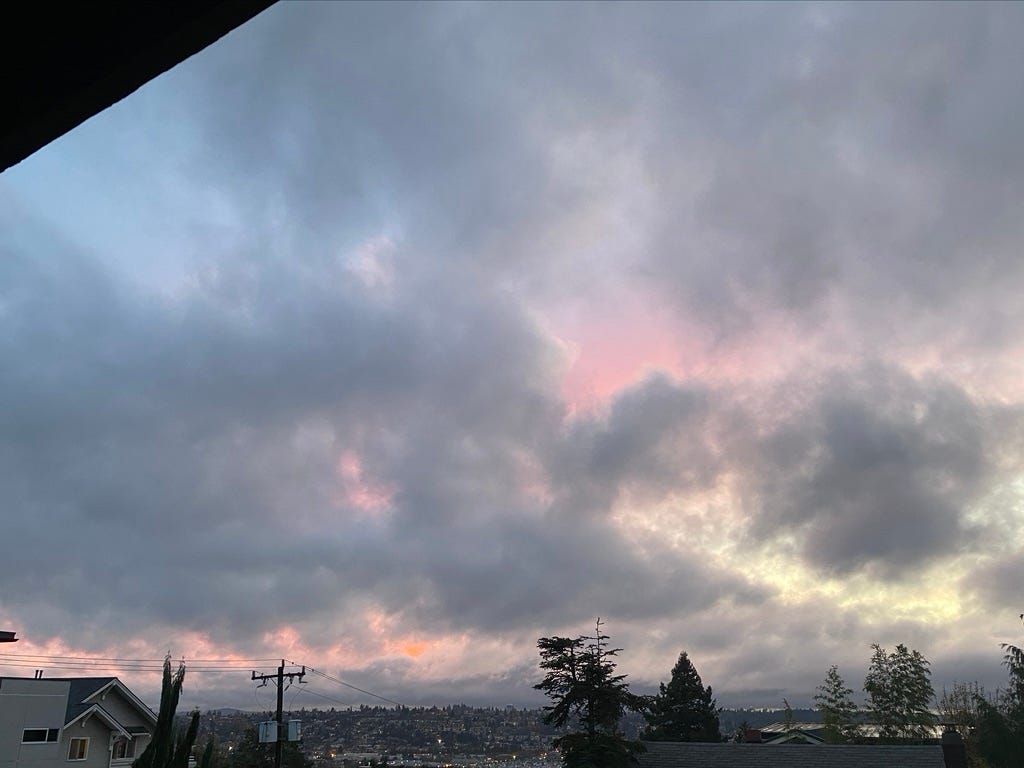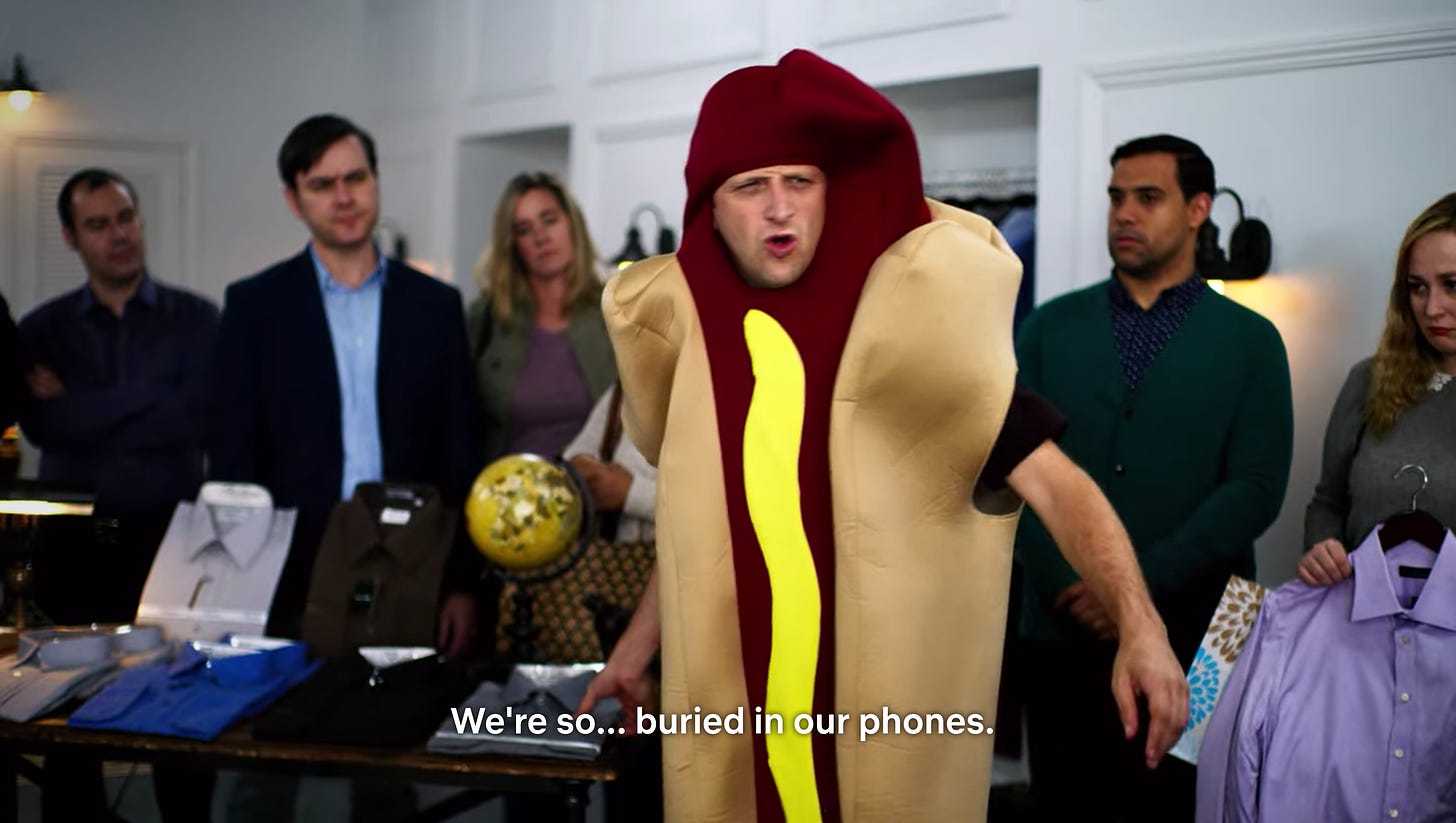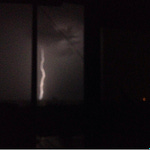I’m developing a theory.
Over the summer, my wife and I dropped our dog off with my mom for a week while we went on vacation. When we got back, my mom had some thoughts.
“You know, I don’t think she sees all that well. Sometimes she can’t find treats I’ve dropped right in front of her.”
That matched a trend my wife and I have noticed over these months with Orla, too. It can be broad daylight and if you throw a treat on the ground for her—usually to reward her for leaving some gross dead thing alone, and also to distract her from going back to said gross dead thing—she often has to sniff around for a little while before she can find it. Sometimes I even have to nudge it toward her with my shoe.
But with the end of daylight savings time and the oft-memed early darkness it brings, lately I’ve been taking her for her last walk of the day in the near- or pitch-black of evening. And in those conditions, she seems to have zero trouble finding a treat that’s been dropped for her, even when it rolls under some leaf litter or into the grass.
Now, I am certainly no expert on dog behavior, even my own dog’s behavior, which is often inscrutable and frustrating to me. But I don’t think she actually has bad eyesight at all. She navigates through our apartment just fine and can recognize either of us from pretty far off. I think it’s just that in the daylight there is simply too much information coming in for her to process, which makes her seeing and her sniffing less effective. In darkness she can ignore her weaker senses and do what she does best: smell.
This is all a little heavyhanded so perhaps you see where I’m going with it.
I’ve been off Facebook and Twitter for a few weeks, taking my annual sanity break from the gripping scroll of information and jokes and ideas that I get far too lost in sometimes. This is one method for what Clive Thompson calls “rewilding your attention,” a metaphor I like for obvious reasons. The idea is that if you can break out of the algorithmically-dictated churn that is designed to both addict and enrage you, your mind might return to a more organic method of learning and discovery. Devoid of all the excess input you can return to your strengths, whatever they may be.
As Richard Powers put it in The Overstory:
The best and easiest way to get a forest to return to any plot of cleared land is to do nothing—nothing at all, and do it for less time than you might think.
It’s nice to think that the mind might follow similar principles.
One of my strengths has always been my memory. I don’t have an eidetic memory or anything like that; I certainly forget things I meant to do or look up on a daily basis, and I routinely have to look up how to drive to places I’ve been a dozen times. But things like trivia, dates, and numbers have always stuck with me. (During his speech at the rehearsal dinner before my wedding, my dad put this to the test by asking me the family significance of several random dates; I think I batted 3-for-4.) When I’m in this yearly “rewilding” period this sense gets keener and my memories sharpen, perhaps unsurprisingly. It’s astonishing what a little break from the noise can do for those little folds in your brain.1
I am not trying to pass myself off as some newly-converted Luddite here. When January 1 rolls around I will be back with the other little piggies at the trough, and for a while it will feel really nice to return to that life, with all its good jokes and group chats and the sense of being reconnected to what’s happening in the world. But every time I do take a break from the most addicting aspects of my phone, I begin to sense acutely just how bad it is for me to be on it as much as I am. (“I don’t have hobbies, I have Twitter”, as the saying goes.)
These are hardly novel observations; I feel like I’ve written some version of this idea into the newsletter every year around this time. Luckily there are smart people out there who think much more deeply and holistically about the root causes, not just the symptoms, of our current technological predicament.
Take L.M. Sacasas, who recently wrote a piece titled “The Human-Built World Is Not Built For Humans”:
A few days ago, a story was circulating about how the infrastructure bill, which was recently passed by the House of Representatives, included funding for research on beacons to be worn by cyclists and pedestrians to make them legible to autonomous vehicles. A story in Forbes noted that the bill “formalizes the acceptance of so-called ‘vehicle to everything’ (V2X) technology that, on the face of it, promises enhanced safety on the roads for pedestrians and cyclists.”
Each time I’ve read something about how we will all have to wear sensors to survive the envisioned future transportation environment, a particular paragraph from Illich’s Deschooling Society has come to mind: “Contemporary man,” Illich wrote, “attempts to create the world in his image, to build a totally man-made environment, and then discovers that he can do so only on the condition of constantly remaking himself to fit it.”
…Once you see this dynamic in one set of circumstances, you start to see it again and again. In innumerable ways we bend ourselves to fit the pattern of a techno-economic order that exists for its own sake and not for ours.
It would be nice to think that it really is as simple as all of us turning off our phones for a while. (And even that isn’t easy, per se. I find myself compulsively checking my email about 20 times a day just to have something to click on that might provide a new stimulus.) I mean, I’m sure it’s healthier than the alternative; I’m certainly sleeping better and reading more than I was a few weeks ago. But at some point we are going to have to reckon with the much larger forces at play here, with who built the world this way and why. Maybe then we can build something different, and in doing so find the better, stronger versions of ourselves on the other side.
Thanks, as always, for reading. I’ll talk to you next week.
-Chuck
PS - If you liked what you read here, why not subscribe and get this newsletter delivered to your inbox each week? It’s free and always will be.
It’s mostly a positive, this sharpening. But it does have occasional downsides. In recent weeks I’ve gotten two separate parking tickets because I incorrectly typed the letters of my own license plate into the machine, instead putting in the nigh-identical letters of the license plate my dad coincidentally had when I was in high school on the other side of the country.

















The Best Way Is To Do Nothing At All